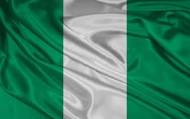By Obinna Chima with agency report,THIS DAY

Standard & Poor’s (S&P), a global ratings agency, yesterday stated that the Central Bank of Nigeria (CBN) would have to devalue the naira at some stage, possibly by more than 15 per cent.
S&P however predicted that the currency adjustments were likely going to be gradual.
Director of Sovereign Ratings at Standard & Poor’s, Ravi Bhatia, was quoted by Reuters to have said: “Another devaluation is inevitable… they will have no option but to devalue.”
But the central bank has maintained that its decision not to undertake a further devaluation of the naira was as a result of the need to safeguard the Nigerian economy from the shocks and negative impact this would have on the economy.
It has also stated that it would not take desperate measures to satisfy few misguided interests in the market.
The CBN Director, Monetary Policy, Mr. Moses Tule, explained recently that measures taken by the central bank so far were aimed at stimulating the naira and supporting local production of goods and services.
“The business of macroeconomic management in any country is the business of the fiscal and monetary authorities. So the two key agencies of macroeconomic management must come together.
“The implication is that the central bank must do its own duty and the arm of government responsible for fiscal policy, in this case, the Federal Ministry of Finance, must do its own part. No economy is run by foreign exchange,” Tule had insisted.
Following devaluations in November and February, the central bank recently focused on curbing access to US dollars on the official interbank market for importers of some goods.
Some of these items include rice, wheel barrows, head pans, cement, margarine, palm kernel/vegetable oil, meat and processed meat products, vegetable and processed vegetable products, poultry, private airplanes/jets, Indian incense, toothpicks and canned fish in sauce (geisha/sardines), among others.
As a result of this, the value of the naira has depreciated to N241 to the dollar at the parallel market.
Bhatia however argued that the forex curbs would just delay the inevitable. Some foreign investors are positioning for a devaluation of around 15 per cent.
Bhatia said that sounded “reasonable”, though even more might be needed.
Non-deliverable forwards (NDF) – derivatives used to hedge against future exchange rate moves – reflect expectations of currency weakening: six-month NDFs price the naira at N233 per dollar, some 18 per cent weaker than the central bank pegged rate of N196.95 on Tuesday.
Bhatia did not expect the adjustment to be done in one go. “I think at this stage the plan is to move in increments, not to do a ‘one big step’ devaluation like they would in the old days,” he said.
The central bank has said it is in no mood to devalue the naira, given the risks to inflation from a weaker currency, and that it will not be focusing on the thinly traded parallel market when determining the exchange rate.
But investors have also been nervous Nigeria might lose its place in the benchmark GBI-EM local currency debt index.
Bhatia said this was a “real possibility”, although he expected the government to adjust policy sufficiently to maintain its membership.
“At some point they have to decide: do they want to go with their policies or do they want to stay in, and at the moment they are trying to do both, and it has worked,” said Bhatia.
“But there are issues there, and it is a concern.”
Despite the concern, the CBN, in a recent article, noted that the exchange rate was simply a price that is determined by the forces of supply and demand.
It said: “The CBN believes that the 48 per cent decline in oil prices may not be transitory and made bold policy changes including closure of the subsidised official forex window, which resulted in a 22 per cent depreciation in the naira. Because the Nigerian economy is heavily dependent on imports and the exchange rate pass-through to inflation is high, we believe that this adjustment is optimal at this time.
“Adjustments to a sharp decline in supply of US dollars cannot all be borne by an indeterminate depreciation, without considering the full impact on the Nigerian economy.
“The demand side also has to be considered, not just in response to the pressure on the naira but as an opportunity to change the economy’s structure, resuscitate local manufacturing, and expand job creation for our citizens.”


Be the first to comment